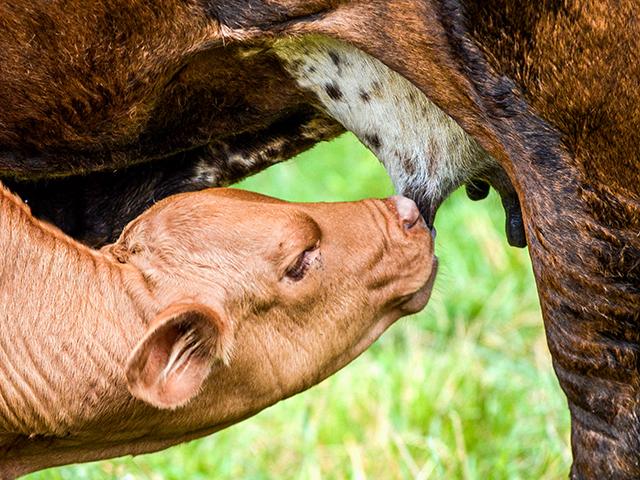Ask the Vet
Hereditary Condition Can Confuse Calves
READER: We have noticed several of our younger cows and heifers have extra teats on their udders. We have never noticed this before. Is this a problem, and if so, what do we need to do?
Dr. McMillan: These extra teats are called supernumerary teats. They are hereditary and have a complex and not fully understood inheritance involving several genes. So, this condition may have been introduced into your herd in the bulls or the cattle you've added. They are common findings in both beef and dairy cattle. One study finds almost a 10% incidence of this in Holstein cattle.
Most commonly these supernumerary teats are found in pairs behind the rear teats. They do not produce milk, and they are not a problem. They can even occur between the teats, making them more difficult to spot. Some will produce small amounts of milk. This condition can be a problem if it interferes with a newborn calf's ability to latch on and nurse the teat, or if they fixate on nursing one of those supernumerary teats.
More commonly, these are a concern in dairy cows, where they may interfere with the milking machine. They can make cleaning and disinfecting the udder more difficult, and increase the incidence of mastitis. These nonfunctional teats are more likely to become infected since neither a calf nor a milking machine can milk them out. For this reason, they are often removed from dairy calves while they are young, but it's probably not necessary in beef cattle.
P[L1] D[0x0] M[300x250] OOP[F] ADUNIT[] T[]
READER: I want to plant a landscaping screen that won't be toxic to goats, sheep, cattle and horses. I need a species that gives full, tall blockage and stays green year-round. Because of property-line constraints, the plants have to be in my actual pasture. I've done research and even asked my local farm agent, but I can't find anything that isn't potentially poisonous to grazing farm animals. Any ideas?
Dr. McMillan: Many years ago, a reader asked the same question. I contacted a local landscape expert, and he suggested Elaeagnus. After this was published, I was "educated" by readers that it is an invasive species from Asia, and it can, and often does, spread into unintended areas. Chinese privet was another hedge from another era that has gone rogue in our area.
I contacted an Extension veterinarian in Ohio to get suggestions for your area. While he noted he was not an expert in poisonous plants, he suggested planting fast-growing pines, such as Norway Spruce or arborvitae. Arborvitae is commonly used in flat areas of Ohio as windscreens.
These would be fast growing, stay green all year and provide privacy once they are tall enough. A temporary fence would probably be needed to allow the hedge to develop early. He said grazing animals could possibly eat enough of them to get sick, but he had never seen an issue.
Remember that whatever you decide to plant, you need something that fits your local climate and soils, and will "behave" as they grow and develop. One of our best resources is our readers, so I'd like to ask them to share ideas about what has worked for them in similar situations. We'll report their responses in a future issue.
READERS TALK BACK
READER: I got so tickled reading your comments about letting our pets clean the dishes after we eat. I am 78 years old and retired after 35 years of farming. In all those years, I have had some sort of companion animal -- cat, dog or both -- living with me. My current "friend" is an 85-pound Husky. She is my shadow. She always expects me to share -- maybe it's a pack thing. I enjoy your column every month. Keep up the good work.
**
-- Please contact your veterinarian with questions pertaining to the health of your herd. Every operation is unique, and the information in this column does not pertain to all situations. This is not intended as medical advice but is purely for informational purposes.
-- Write Dr. Ken McMillan at Ask The Vet, 2204 Lakeshore Dr., Suite 415, Birmingham, AL 35209, or email vet@progressivefarmer.com
[PF_1122]
(c) Copyright 2022 DTN, LLC. All rights reserved.




